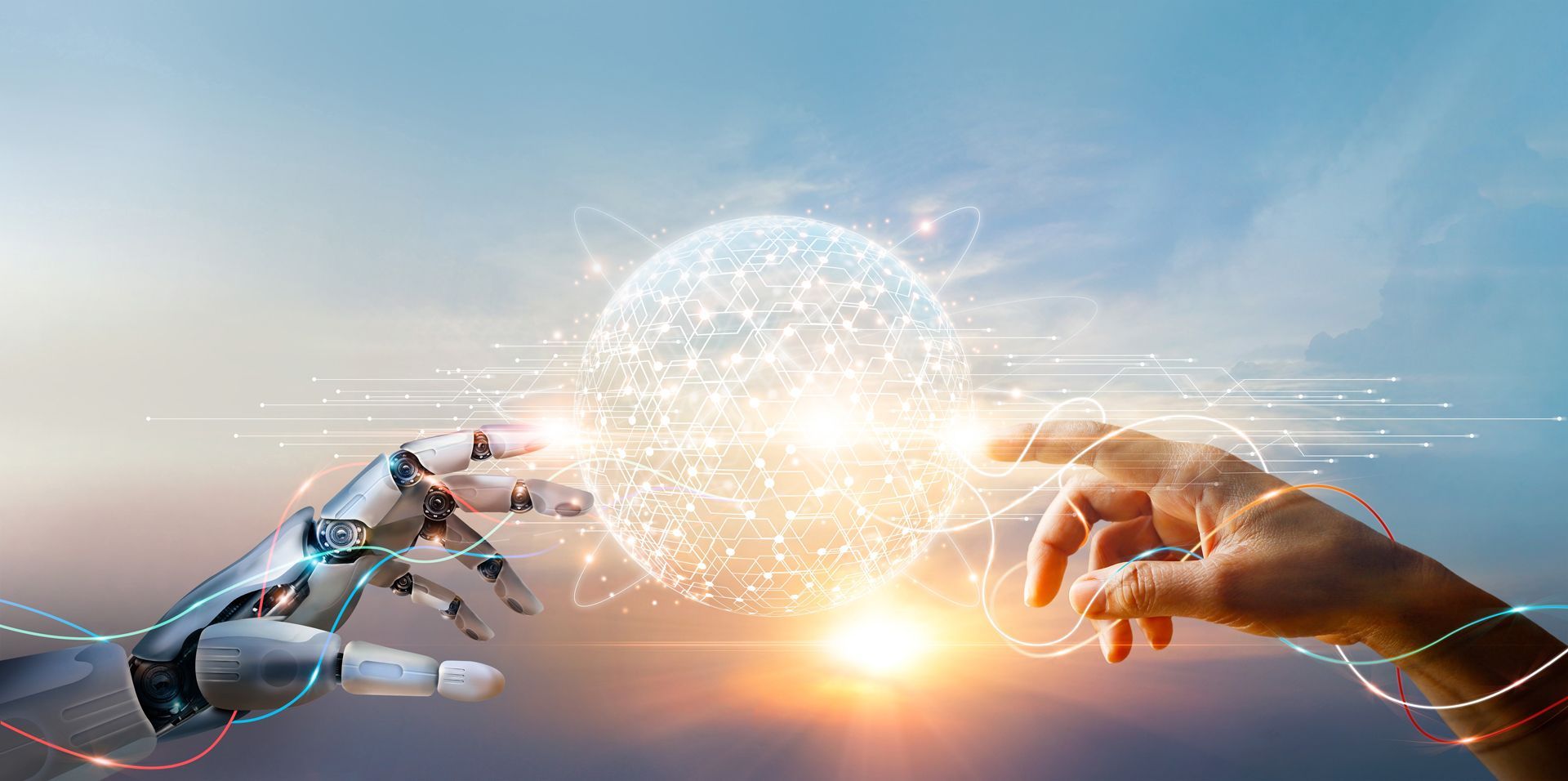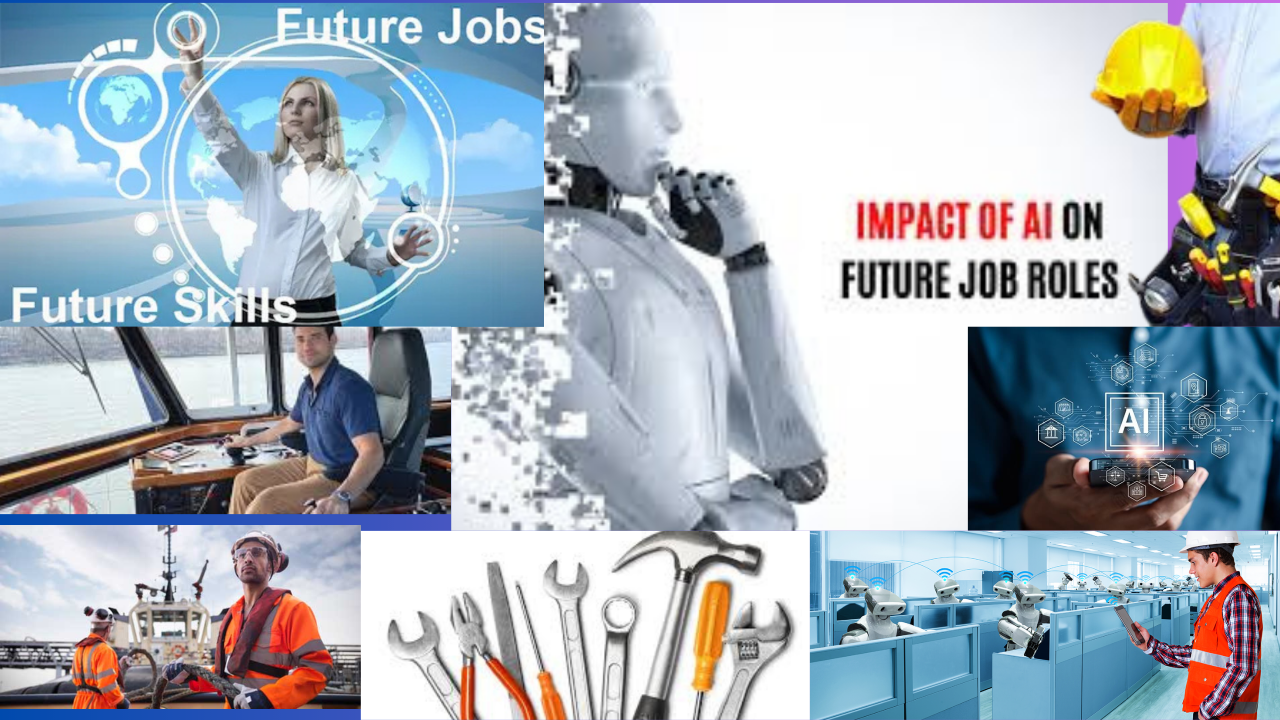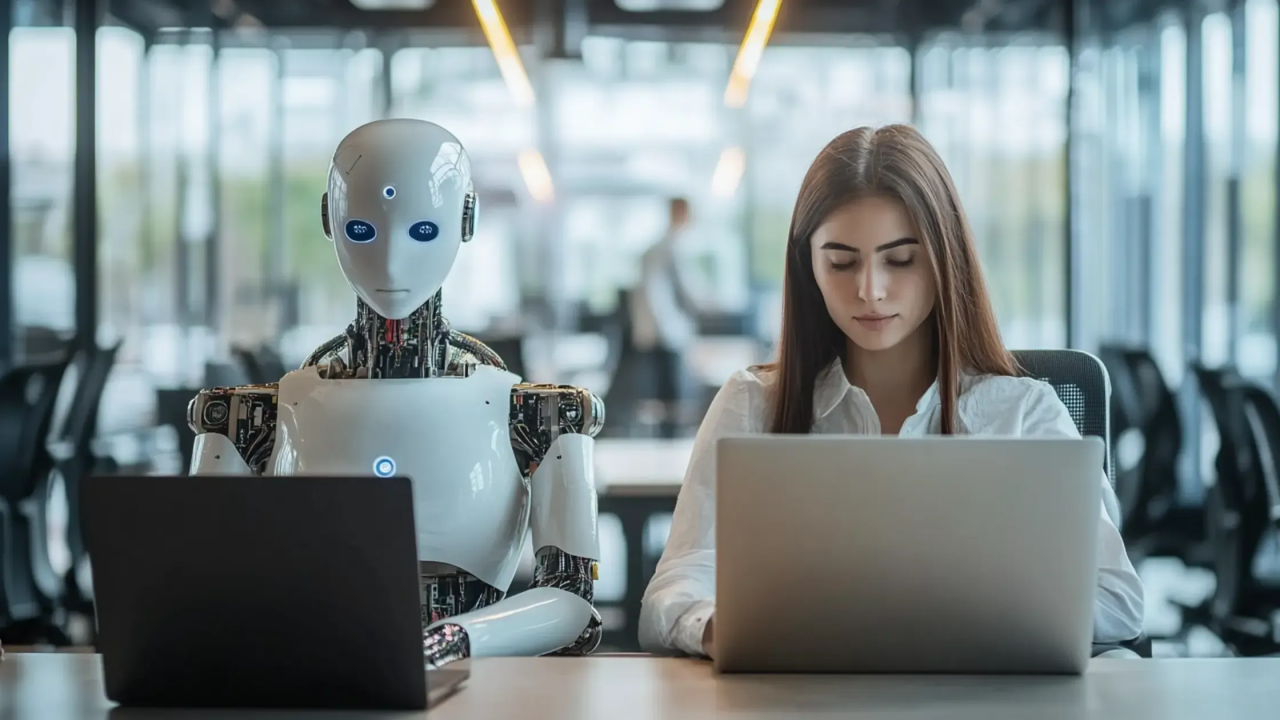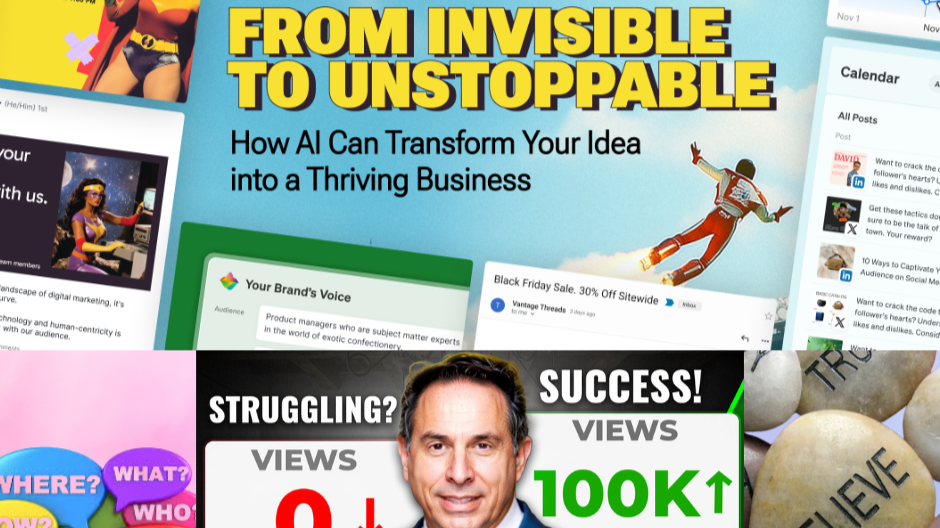How Will Artificial Intelligence Affect Jobs from 2024 to 2030?

If you haven't noticed the seismic shifts in the job market driven by artificial intelligence (AI), you've likely been living under a rock. AI technologies like ChatGPT are dominating headlines, and tech giants like Google are unveiling new AI software to build presentations, analyze and enter data, and write content. The list of AI tools, such as Gamma and Numerous AI, keeps growing.
Those who resist AI rather than embracing its potential will miss out on in-demand job opportunities and growth over the next six years. While AI will undoubtedly displace some jobs, it will also create many new ones.
Jobs Most Likely to Be Affected by AI from 2024 to 2030
How Artificial Intelligence Will Change the World
Will AI help or hurt the world? This question sparks intense debate. Many believe AI has the potential to bring about numerous positive changes, including enhanced productivity, improved healthcare, and increased access to education. Market research analysts emphasize the importance of adapting to AI now to maximize its benefits.
On the other hand, some argue that AI and robotics, particularly in manually repetitive jobs, are disruptive forces that threaten job security. However, AI technologies are also expected to create new vocations, solve complex problems, and make our daily lives easier and more convenient. The consensus is gradually shifting towards AI being more of a positive force than a negative one.
AI's Impact on Jobs and the Economy
According to the McKinsey Global Institute, AI could significantly boost the global economy, potentially adding $13 trillion in economic activity by 2030. This increase, about 16% higher cumulative GDP compared to today, would result from labor automation and innovation in products and services. McKinsey's simulations suggest that by 2030, around 70% of companies will have adopted at least one type of AI technology, although less than half will have fully integrated all five categories of AI technologies.
Forbes highlights AI's potential to be among the most disruptive technologies ever, reshaping global economies and industries.
AI's Impact on Society and the Future
Forbes also points out that AI brings endless possibilities and applications that will significantly simplify our lives. AI will positively shape humanity's future, although its transformative impact will have far-reaching economic, legal, political, and regulatory implications that need careful consideration. Enhanced productivity, improved healthcare, and increased access to education are just a few of the numerous positive changes AI could bring.
How Many Jobs Will AI Replace by 2030?
A report by Goldman Sachs estimates that AI could replace the equivalent of 300 million full-time jobs, affecting a quarter of work tasks in the US and Europe. However, this displacement could lead to new job creation and a productivity boom, potentially increasing the total annual value of goods and services produced globally by 7%. The report also suggests that two-thirds of jobs in the US and Europe are exposed to some degree of AI automation, with about a quarter of all jobs being entirely performable by AI.
Researchers from the University of Pennsylvania and OpenAI found that educated white-collar workers earning up to $80,000 a year are most likely to be affected by workforce automation. An MIT and Boston University report predicts that AI could replace as many as two million manufacturing workers by 2025. Additionally, a McKinsey Global Institute study suggests that by 2030, at least 14% of employees globally might need to change careers due to digitization, robotics, and AI advancements.
Jobs Most Likely to Be Automated
1. Customer Service Representatives
- AI can automate repetitive customer service interactions, providing quick and efficient responses to frequently asked questions without the need for human intervention.
2. Receptionists
- Companies increasingly use robots and AI to manage reception areas and handle calls. For instance, AimeReception can interact with guests and customers, seeing, listening, understanding, and responding to them.
3. Accountants/Bookkeepers
- Many businesses are turning to AI-powered bookkeeping services, which offer efficient, flexible, and secure accounting systems. These services collect, store, and analyze data accurately, often at a lower cost than employing human accountants.
How Will Artificial Intelligence Affect Jobs from 2024 to 2030?
If you haven't noticed the seismic shifts in the job market driven by artificial intelligence (AI), you've likely been living under a rock. AI technologies like ChatGPT are dominating headlines, and tech giants like Google are unveiling new AI software to build presentations, analyze and enter data, and write content. The list of AI tools, such as Gamma and Numerous AI, keeps growing.
Those who resist AI rather than embracing its potential will miss out on in-demand job opportunities and growth over the next six years. While AI will undoubtedly displace some jobs, it will also create many new ones.
Jobs Most Likely to Be Affected by AI from 2024 to 2030
How Artificial Intelligence Will Change the World
Will AI help or hurt the world? This question sparks intense debate. Many believe AI has the potential to bring about numerous positive changes, including enhanced productivity, improved healthcare, and increased access to education. Market research analysts emphasize the importance of adapting to AI now to maximize its benefits.
On the other hand, some argue that AI and robotics, particularly in manually repetitive jobs, are disruptive forces that threaten job security. However, AI technologies are also expected to create new vocations, solve complex problems, and make our daily lives easier and more convenient. The consensus is gradually shifting towards AI being more of a positive force than a negative one.
AI's Impact on Jobs and the Economy
According to the McKinsey Global Institute, AI could significantly boost the global economy, potentially adding $13 trillion in economic activity by 2030. This increase, about 16% higher cumulative GDP compared to today, would result from labor automation and innovation in products and services. McKinsey's simulations suggest that by 2030, around 70% of companies will have adopted at least one type of AI technology, although less than half will have fully integrated all five categories of AI technologies.
Forbes highlights AI's potential to be among the most disruptive technologies ever, reshaping global economies and industries.
How Many Jobs Will AI Replace by 2030?
A report by Goldman Sachs estimates that AI could replace the equivalent of 300 million full-time jobs, affecting a quarter of work tasks in the US and Europe. However, this displacement could lead to new job creation and a productivity boom, potentially increasing the total annual value of goods and services produced globally by 7%. The report also suggests that two-thirds of jobs in the US and Europe are exposed to some degree of AI automation, with about a quarter of all jobs being entirely performable by AI.
Researchers from the University of Pennsylvania and OpenAI found that educated white-collar workers earning up to $80,000 a year are most likely to be affected by workforce automation. An MIT and Boston University report predicts that AI could replace as many as two million manufacturing workers by 2025. Additionally, a McKinsey Global Institute study suggests that by 2030, at least 14% of employees globally might need to change careers due to digitization, robotics, and AI advancements.
Jobs Most Likely to Be Automated
1. Customer Service Representatives
- AI can automate repetitive customer service interactions, providing quick and efficient responses to frequently asked questions without the need for human intervention.
2. Receptionists
- Companies increasingly use robots and AI to manage reception areas and handle calls. For instance, AimeReception can interact with guests and customers, seeing, listening, understanding, and responding to them.
3. Accountants/Bookkeepers
- Many businesses are turning to AI-powered bookkeeping services, which offer efficient, flexible, and secure accounting systems. These services collect, store, and analyze data accurately, often at a lower cost than employing human accountants.
4. Salespeople
- Traditional sales roles are being transformed as advertising shifts to web and social media platforms. Built-in target marketing capabilities allow advertisers to create custom content for different audience segments, reducing the need for traditional salespeople.
5. Research and Analysis
- Data analysis and research are increasingly streamlined through AI, which can sort, extrapolate, and analyze data efficiently. As AI continues to improve, human involvement in these tasks may diminish significantly.
6. Warehouse Work
- The rise of online sales has led to greater automation in warehouses. Automated systems can efficiently manage orders, locate packages, and even perform mechanized retrieval and loading, increasing shipping capacities.
7. Insurance Underwriting
- AI can assess the viability of insurance applicants by analyzing data and applying formulas, reducing the need for human underwriters. As AI adapts to perform more complex tasks, the demand for human underwriters may decrease.
8. Retail
- Self-checkout stations in stores are a prominent example of automation in retail. Despite concerns about theft, these systems save companies money by reducing the need for human cashiers.
How to Quickly Change Careers
Experts suggest that AI and machine learning will create more occupations than they replace. To ride the wave and build a new career, acquiring the necessary skills is crucial. If you're exposed to AI and looking to pivot into an AI-focused role, demonstrating your knowledge and experience with AI development can give you an edge.
To stand out from other candidates, ramp up your technical skills, complete online courses, understand the industry, gain work experience, and develop your soft skills. AI requires extensive research and collaboration, making soft skills valuable in addition to technical expertise.
Jobs AI Will Not Replace
While AI will transform many jobs, certain professions will remain relatively safe from automation due to their complexity and the need for human touch:
1. Teachers
- Teaching requires personal interaction and inspiration, making it unlikely to be fully digitized.
2. Lawyers and Judges
- Legal roles involve negotiation, strategy, and case analysis, relying heavily on personal experience and human judgment.
3. Directors, Managers, and CEOs
- Leadership roles require human qualities like inspiration and strategic thinking, which are difficult to replicate with AI.
4. HR Managers
- HR tasks extend beyond hiring to include maintaining staff motivation and addressing issues, requiring a human touch.
5. Psychologists and Psychiatrists
- Mental health support relies on human interaction and empathy, areas where AI cannot fully replace humans.
6. Surgeons
- While technology enhances surgical precision, the human ability to connect with patients and make complex decisions is irreplaceable.
7. Computer System Analysts
- These roles require coordination among specialists and adapting systems to changing needs, tasks that benefit from human oversight.
8. Artists and Writers
- Creativity and the nuanced use of language in art and writing are uniquely human traits that AI cannot fully replicate.
How Many Jobs Will Be Lost to AI by 2025?
The World Economic Forum estimates that AI will replace 85 million jobs by 2025. Freethink suggests that 65% of retail jobs could be automated by that year due to technological advancements and economic pressures.
How Many Jobs Will Be Lost to AI by 2030?
PwC estimates that up to 30% of jobs could be automated by the mid-2030s, with men potentially being more affected in the long run due to their higher representation in manual tasks. However, women may face greater risk of automation in clerical and administrative roles initially.
Embracing AI and Learning New Skills
To stay ahead in the AI era, it's essential to develop new skills and adapt to the changing job market. Here are some strategies:
1. Embrace Lifelong Learning
Continuously learn and adapt to new technologies through courses, workshops, and staying updated with industry trends.
2. Develop Soft Skills
Communication, problem-solving, and collaboration are crucial, as AI cannot replicate human emotional intelligence and creativity.
3. Be Agile
Adapt quickly to changing circumstances by learning new skills, taking on new responsibilities, and exploring new career paths.
4. Specialize
Develop expertise in a particular area to increase your value to employers and stand out in the job market.
Learning from a Next-Gen University
Agility and skills development are key to transitioning to the new AI-driven job market. Online next-gen Entreprenurial Platforms like Digital Growth Community offers programs tailored to current employer needs and market trends. This platforms supports those who want to learn and earn and create new ways of understanding new trends.
You can pursue learning new skills that are high demand in todays market place by employers with a specialization in AI or Marketing Specialists with a focus on advanced AI, equipping you with the necessary skills to thrive in the AI job market.
Conclusion
While AI will replace some jobs, it will also create new opportunities. Embracing AI and adapting to its changes will be crucial for success. AI promises to drive businesses forward, automate processes, and provide valuable insights. By developing relevant skills and staying adaptable, workers can thrive in the AI era and take advantage of the opportunities it presents.
AI is set to transform the job market from 2024 to 2030. While some jobs will be automated, new opportunities will arise, requiring workers to adapt and embrace AI's potential. The future of work will be shaped by how society integrates and leverages AI technologies, balancing disruption with innovation and growth.
BUILD YOUR BRAND THROUGH OUR AFFILIATE pLATFORM
Give us a call today
Phone Number: (504) 344-3317
Send us an Email today
Email: manfreconsulting@gmail.com
All Rights Reserved | Manfre And Associates Consulting Services



